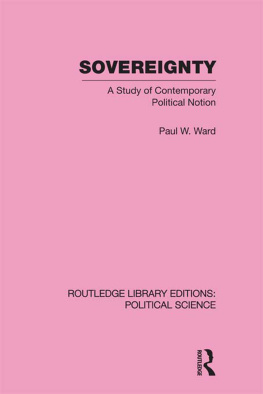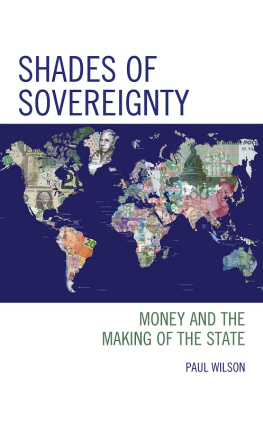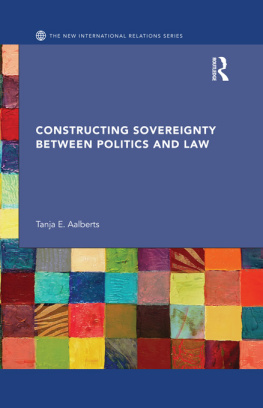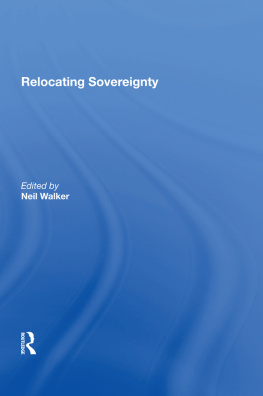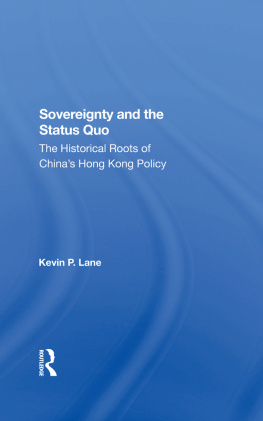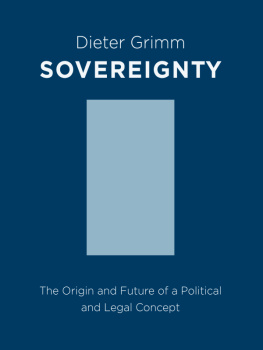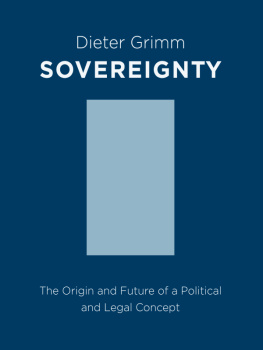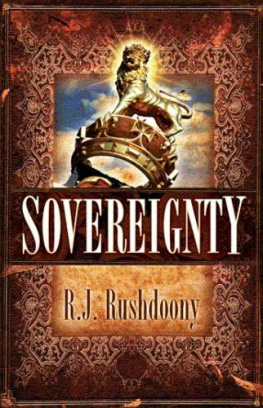ROUTLEDGE LIBRARY EDITIONS:
POLITICAL SCIENCE
SOVEREIGNTY
SOVEREIGNTY
A Study of Contemporary Political Notion
By
PAUL W. WARD
Volume 37
First published in 1928
This edition first published in 2010
by Routledge
2 Park Square, Milton Park, Abingdon, Oxon, OX14 4RN
Simultaneously published in the USA and Canada
by Routledge
270 Madison Avenue, New York, NY 10016
Routledge is an imprint of the Taylor & Francis Group, an informa business
1928 George Routledge & Sons, Ltd.
All rights reserved. No part of this book may be reprinted or reproduced or utilised in any form or by any electronic, mechanical, or other means, now known or hereafter invented, including photocopying and recording, or in any information storage or retrieval system, without permission in writing from the publishers.
British Library Cataloguing in Publication Data
A catalogue record for this book is available from the British Library
ISBN 10: 0-415-49111-8 (Set)
ISBN 13: 978-0-415-49111-2 (Set)
ISBN 10: 0-415-55577-9 (Volume 37)
ISBN 13: 978-0-415-55577-7 (Volume 37)
Publisher's Note
The publisher has gone to great lengths to ensure the quality of this reprint but points out that some imperfections in the original copies may be apparent.
Disclaimer
The publisher has made every effort to trace copyright holders and would welcome correspondence from those they have been unable to trace.
SOVEREIGNTY
A STUDY OF A CONTEMPORARY
POLITICAL NOTION
By
PAUL W. WARD
LONDON :
GEORGE ROUTLEDGE AND SONS, LTD.,
BROADWAY HOUSE: 68-74, CARTER LANE, E.C.
1928
PRINTED IN GREAT BRITAIN
BY MACKAYS LTD., CHATHAM.
ACKNOWLEDGMENTS
The author wishes to acknowledge his supreme indebtedness to Professor John Dewey, of Columbia University, both for general view-point and for encouragement and guidance in the preparation of these pages. The criticisms and comments of Professor Herbert W. Schneider, of the same institution, have been indispensable. To Professor Harold J. Laski, of the London School of Economics and Political Science, who first interested him in the notion of sovereignty, the author is indebted for many useful suggestions. Professor Austen P. Evans, of Columbia, has aided by his criticisms of the first chapter. Incidental criticisms by Professor John J. Coss, of Columbia, and Professor Floyd H. Allport, of Syracuse University, have been gratefully utilized. Mrs. Ward has read the proof Without attempting to share responsibility for his opinions the author wishes to express his appreciation of the friendly help which he has received.
P.W.W.
Syracuse University,
Syracuse, N.Y.,
August 20th, 1927.
CONTENTS
SOVEREIGNTY
Chapter I
INTRODUCTORY SURVEY
History of the concept has been well discussed.
THE history of the concept of sovereignty has been, for the most part, amply treated. What the important men in the history of political philosophy have said regarding the nature, locus, extent, and basis of sovereignty is available to even the cursory reader. Political history has been revealed as a field in which men have invented device after device, in which they have formed and often reformed principle after principle, in the effort to solve the difficulties in which they have found themselves. It is the purpose of the present study to throw additional light upon the meaning of the term sovereignty in contemporary thought. To that end a brief preliminary survey of its origin and some of the historical uses to which it has been put may prove illuminating, without making any pretence of adding to historical knowledge.
Three general phases are apparent in the history of the notion ; (1) its emergence from the complex materials of ancient tradition and late medival usage ; (2) its specific enunciation and application by the absolute monarchs of the early modern period ; (3) its repeated reinterpretation since 1688 and the historical rise of responsible government. The interest throughout the subsequent pages is not merely in the intellectual content of the various doctrines, the what, but also in the why.
Origins of the modern concept.
The modern idea of sovereignty is obviously the heir of ancient concepts of supreme authority. Aristotle recognized that the Greek city's authority must be in the hands of one, or of a few, or of many. Its general structure remained unaltered, however, and subsequent history is intelligible only as the system of personal loyalties, and land tenures which constituted feudalism are recognized as providing the general framework within which development took place. Notions of supreme power came down from antiquity, but the factual basis of the sovereignty of the early modern monarch, the concrete context of mutual obligations and interests in terms of which he claimed authority, was furnished by the total complex of human attitudes as they emerged from feudalism.
Papacy first asserts Monarchical Omnicompetence.
When Gierke says
Philip the Fair and Lewis of Bavaria opposed by Papal writers.
The two outstanding princes who led the rebellion against the Papacy were Philip the Fair of France and Lewis of Bavaria. The quarrel between Philip and Boniface over taxation, obviously a temporal matter, gave occasion for the former to deny categorically the Papacy's temporal power. He asserted that in temporal affairs he was subject to no one. The papal position, as embodied in the bull Unum Sanctum, was carefully supported by papal writers, notably gidius Romanus. asserted that the Pope could exempt no one from his power in temporal matters, and could, as the interpreter and ordainer of all law, appropriate the property of kings and princes. The Papacy was trying to compensate for its lack of physical power by diplomacy and propaganda. When a system reaches the postulation of its own infallibility, however, it is already in decay. Privileges are exaggerated when they are about to be lost. So the claims of the Papacy became heightened as its submergence became more certain. Indeed, the Papacy took possession of a system already in decay. A large number of factors contributed to the decadence of the system. The formation of national languages and ideals, and the development of towns had no small part to play. If the Pope in former days had been able to reach past the Emperor and claim support for his position from the Emperor's vassals, it was equally true that after the Pope's victory the leading contenders for power, the local princes, could reach beneath their turbulent feudal retainers and gain support from towns and burghers. A new orientation was in the making.
The views of Peter Dubois.
Previous theories were opposed by a new realism in the supporters of Philip. Peter Dubois (born c. 1255) took a very practical view of affairs. He recognized that the French King had consolidated his position and in consequence possessed actual political power superior to the Pope, however much the latter might be superior, theoretically, even to the Emperor, as a result of the Donation of Constantine. Without sufficient power the theoretical superiority of the Pope was vain ; and the Pope could never possess that power. With Machiavellian candour Dubois pointed out that most Popes have been old men, lacking proper connections for wide temporal power ; besides, their business is to save souls rather than to dabble in politics. For the latter task no one was so well qualified, in the opinion of Dubois, as the King of France ; to him, therefore, should fall the leadership of Christendom.


